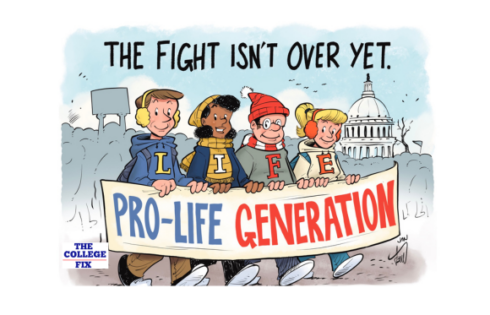
The Family Educational Rights and Privacy Act has been twisted into pretzels by college administrations that define nearly everything as a student record shielded from public scrutiny – employee emails, foundation spending, even the public response to revised fight-song lyrics.
It nearly got much worse, through an innocuous amendment to FERPA proposed by Sens. Ed Markey, Democrat of Massachusetts, and Orrin Hatch, Republican of Utah. Their draft bill in May was intended to “ensure that student data handled by private companies is protected.”
That bill, however, would have blocked schools from “releasing any personally identifiable information held by the institution, including information not contained in or obtained from education records,” the Student Press Law Center said last week.
Press advocates including SPLC, the Society of Professional Journalists and Reporters Committee for Freedom of the Press told the sponsors in a June letter that their draft would
impede access to information from any source whatsoever, even a source as to which there is no reasonable privacy interest (for example, the football-team manifests requested by reporters from the Columbus Dispatch). This change has the potential to expand the already-excessive scope of FERPA to a dangerous and unwarranted degree. The Department of Education consistently has opined that FERPA applies solely to education records and material derived therefrom, and not to information in general, and that distinction should be maintained.
The revised Markey-Hatch bill is missing that overbroad language, but it’s also lacking much-needed FERPA reforms identified by the press advocates, SPLC said last week:
“Unfortunately, they’re not going to use this as a vehicle to reverse decades of misinterpretation of the law,” [American Society of News Editors] legal counsel Kevin Goldberg said. “We’ll continue to try to educate Congress, the Department of Education, schools and reporters on the proper application of FERPA.”
Among the things that schools have cited FERPA to hide, according to SPLC: “a known serial sex offender at large” in the community around Oklahoma State University, and the reasoning behind a publicly identified University of Michigan football player being allowed to play for four years – and only then expelled – after being accused of sexual assault.
A revised FERPA wouldn’t endanger students or force public colleges to make any particular policy decision. It simply would open them up to public debate, the way any taxpayer-funded institution should be.
Greg Piper is an assistant editor of The College Fix. (@GregPiper)
Like The College Fix on Facebook / Follow us on Twitter
IMAGE: Derek Bruff/Flickr







Please join the conversation about our stories on Facebook, Twitter, Instagram, Reddit, MeWe, Rumble, Gab, Minds and Gettr.